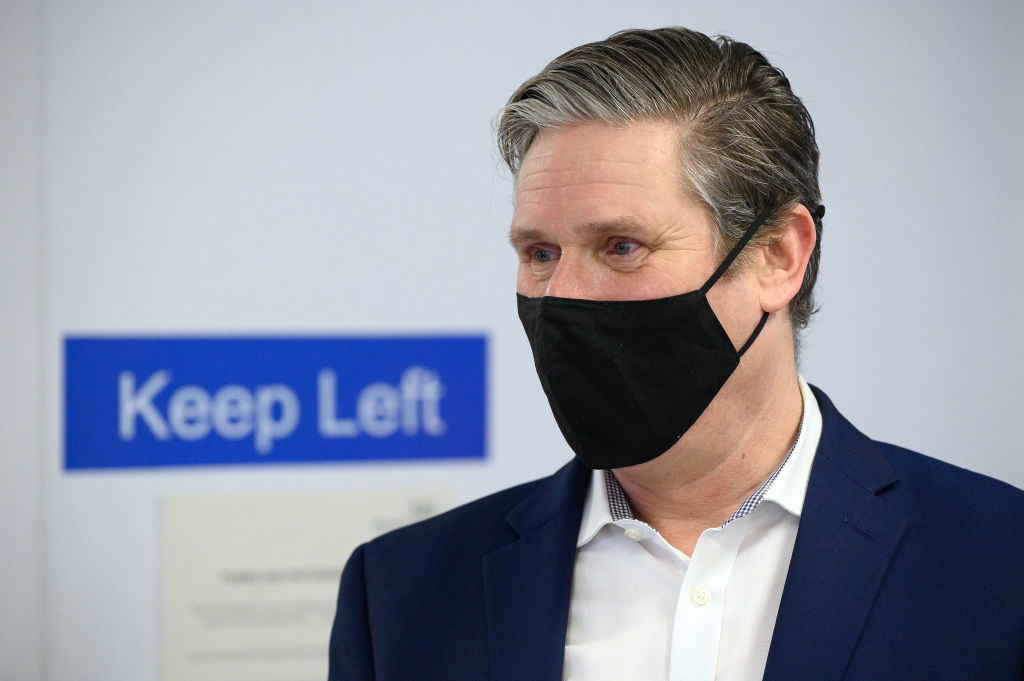MPs will continue debating the second reading of the Police, Crime, Sentencing and Courts Bill today, with a vote later. Last night’s debate gave us a pretty good idea of what the legislation’s progress through the Commons is going to look like: it is going to be far more partisan and noisy than anything Parliament has seen in the past year.
There was a battle of interventions from Conservative and Labour backbenchers as their own sides set out their positions on the bill. Tory MPs had clearly come primed to argue that voting against the legislation would be a mistake for Labour, while Opposition MPs were busy pointing out that it contained scant reference to protecting women.
Here’s one exemplary intervention from Tory backbencher Jacob Young early on, asking Shadow Home Secretary Nick Thomas-Symonds the following:
‘Does the right hon. Gentleman not agree that no one should be able to block an ambulance from crossing the road or bridge, and that no one should be able to block a printing press from printing newspapers? If he does agree, why will he not vote for the Bill?’
Things are likely to get a little more difficult for Starmer as the febrile climate calms down
Labour is indeed in an awkward position, given the wide scope of the Bill, and given its late decision to oppose it. Thomas-Symonds argued last night that ‘the government could press pause on the Bill and bring the whole House together’, saying that if ministers removed parts three and four – which deal with protests and unauthorised encampments – then Labour could support it.
On Sunday when the whipping decision was taken, shadow ministers quickly adopted the line that the legislation doesn’t mention women and does very little for them – which is true but also rather undermined by the fact that another piece of legislation, the Domestic Abuse Bill, is going through its remaining stages in the House of Lords at the moment.
Another campaign tactic the party has adopted in the past few days is to say that someone who attacks a statue gets 10 years in prison while a rapist gets five. This is a distortion. The maximum sentence for the former is 10 years, but the maximum sentence for rape is life – though, of course, many rapists are sentenced to far less (but still more than five years, on average). It’s a catchy line, but it also suggests a certain amount of desperation on the part of the Labour frontbencher, presumably because the party is worried that this legislation represents a pretty toxic bundle.
That’s not to say Conservative MPs are all delighted by parts three and four, though. Charles Walker has a long and distinguished record of spotting duff and illiberal laws (The Spectator gave him an award for doing so a few years ago when he voted against the Leveson legislation). He got his concerns about this legislation in early, responding to Priti Patel’s statement on the policing of the Clapham vigil:
‘This House criminalised the freedom of protest. It was this House – us – not Dame Cressida or the Metropolitan police, who criminalised the freedom to protest collectively. We are up to our eyeballs in this. Does my right hon. Friend the Home Secretary agree that now is the time to decriminalise freedom of protest – not tomorrow, not next week, but this afternoon or this evening? Let us get people back on the streets and allow them to get things off their chest again. Protest is a safety valve.’
In the second reading debate itself, Fiona Bruce also expressed concerns about the extension of police powers to crack down on protests that cause ‘serious annoyance’ and ‘serious inconvenience’. She warned:
‘Without amendment, the Bill could increase police apprehension of otherwise lawful speech and could have a profoundly chilling effect on free speech more widely. I hope that the Committee and the other place will have sufficient time to carefully scrutinise this significant Bill.’
Stephen Hammond similarly said the government needed to make sure it defined what impact and noise meant so that police could make the right decisions when policing protests.
The Bill will pass its second reading tonight, though Labour will vote against. Voting against at second reading is generally taken as a way of saying that you don’t agree with the principles in the legislation at all, and that it’s not worth trying to make changes at the detailed scrutiny stages that follow.
That may feel like the right message for the party to send now – but things are likely to get a little more difficult for Sir Keir Starmer as the slightly febrile climate calms down. And even though ministers know they’ve got the votes for tonight, they should also be aware that things are likely to get even more difficult for them in the coming weeks as the impact of this legislation on the right to protest becomes clearer.







Comments